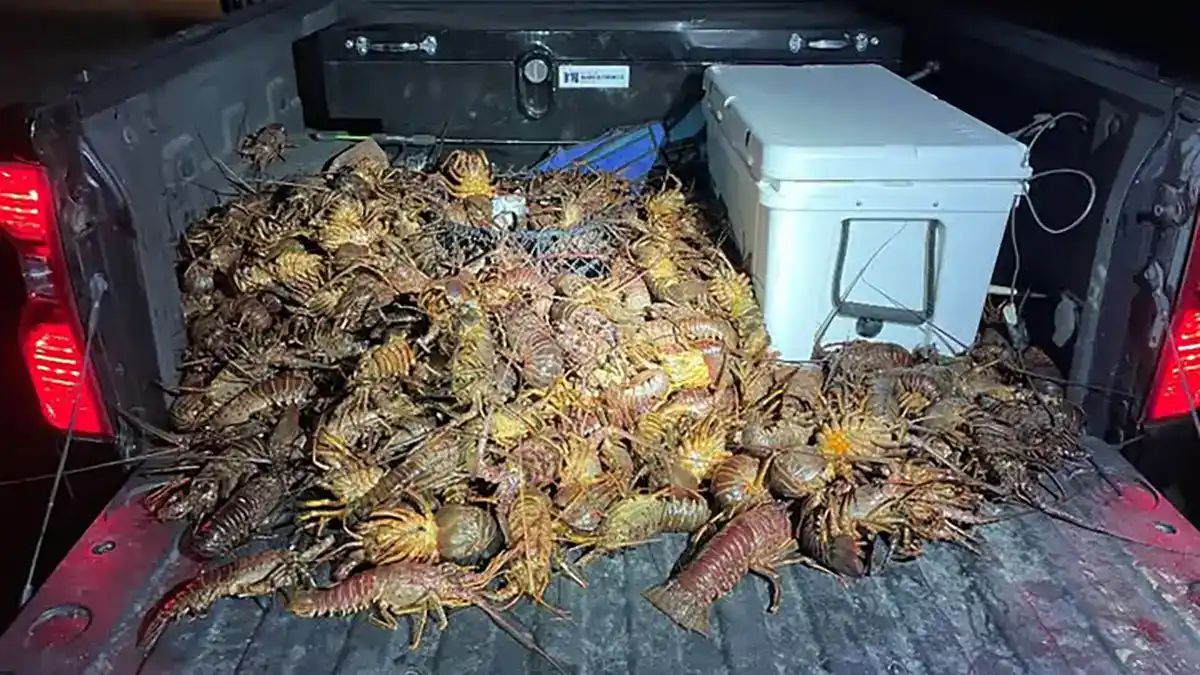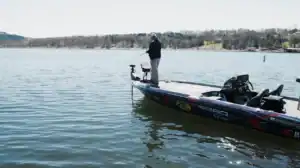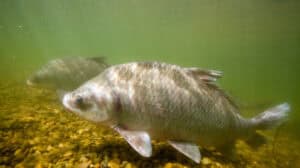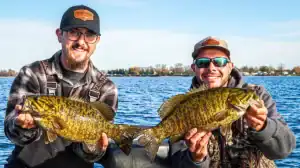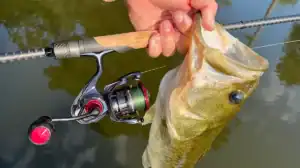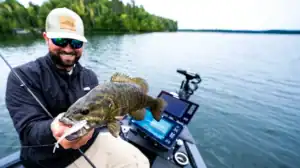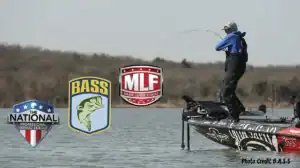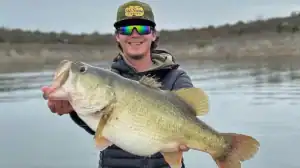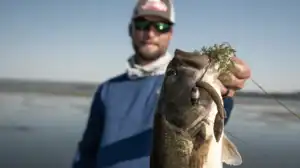California Department of Fish and Wildlife officers cited four poachers in the early hours of Aug. 1 for multiple violations after illegally harvesting spiny lobsters during the closed season near Royal Palms Beach in San Pedro, Los Angeles.
Officers were on a routine nighttime patrol of the coastline when they spotted a small group of people in wetsuits and diving gear hauling lobsters out of the ocean, months after the recreational and commercial season closed in March. When the suspects tried to leave the area at about 3 a.m., officers made contact. A short foot pursuit ensued that ended with all four apprehended without further incident.
The suspects’ haul revealed the extent of their illegal activity. Inside the bed of their pickup truck were 236 spiny lobsters; 210 of them were undersized. The suspects were also found fishing without a valid license and without the required measuring devices.
During the regular season, which runs from October to mid-March, California allows seven lobsters per person. Lobsters must measure at least 3 ¼ inches from the rear edge of the eye socket to the rear edge of the carapace. These regulations are intended to protect juvenile lobsters, thereby supporting long-term population health and sustainable fisheries.
The California spiny lobster (Panulirus interruptus) is prized by anglers and recreational divers for its sweet, tender meat. These nocturnal crustaceans typically inhabit rocky reefs, kelp forests, and beds of surfgrass along the coast. They emerge from their hiding places at night to eat algae, small clams, crabs, and other invertebrates. Night diving with lights is a common method for locating and catching them.
Spiny lobsters can live up to 30 to 50 years but don’t reach reproductive maturity until around 5 to 9 years of age. These animals have a complex reproductive cycle that can take approximately two years from mating to the settlement of larvae. Females carry fertilized eggs on their abdomen until they hatch, using specialized appendages to groom and protect the egg mass. This makes the protection of undersized individuals critical, as removing them before they can reproduce can hinder population numbers.
Fortunately, most of the poached lobsters found by CDFW officers were still alive. After a quick count and photographs for evidence, officers returned the majority to the ocean. The four divers were cited for multiple misdemeanor violations, including taking lobster during the closed season, possessing undersized lobster, commercialization without a license, no fishing license, and no measuring device, according to CDFW.
For anyone hitting the water, this is a serious reminder to know the rules before you dive. Using proper measuring tools, respecting season dates, and understanding possession limits not only keeps you on the right side of the law but also helps ensure fisheries remain healthy. CDFW encourages anyone who spots illegal fishing to report it via CalTIP by calling 888-334-2258 or texting “CALTIP” plus your message to 847411 (tip411). You can also make a report through the CalTIP app, which is available from Apple or Google Play.
